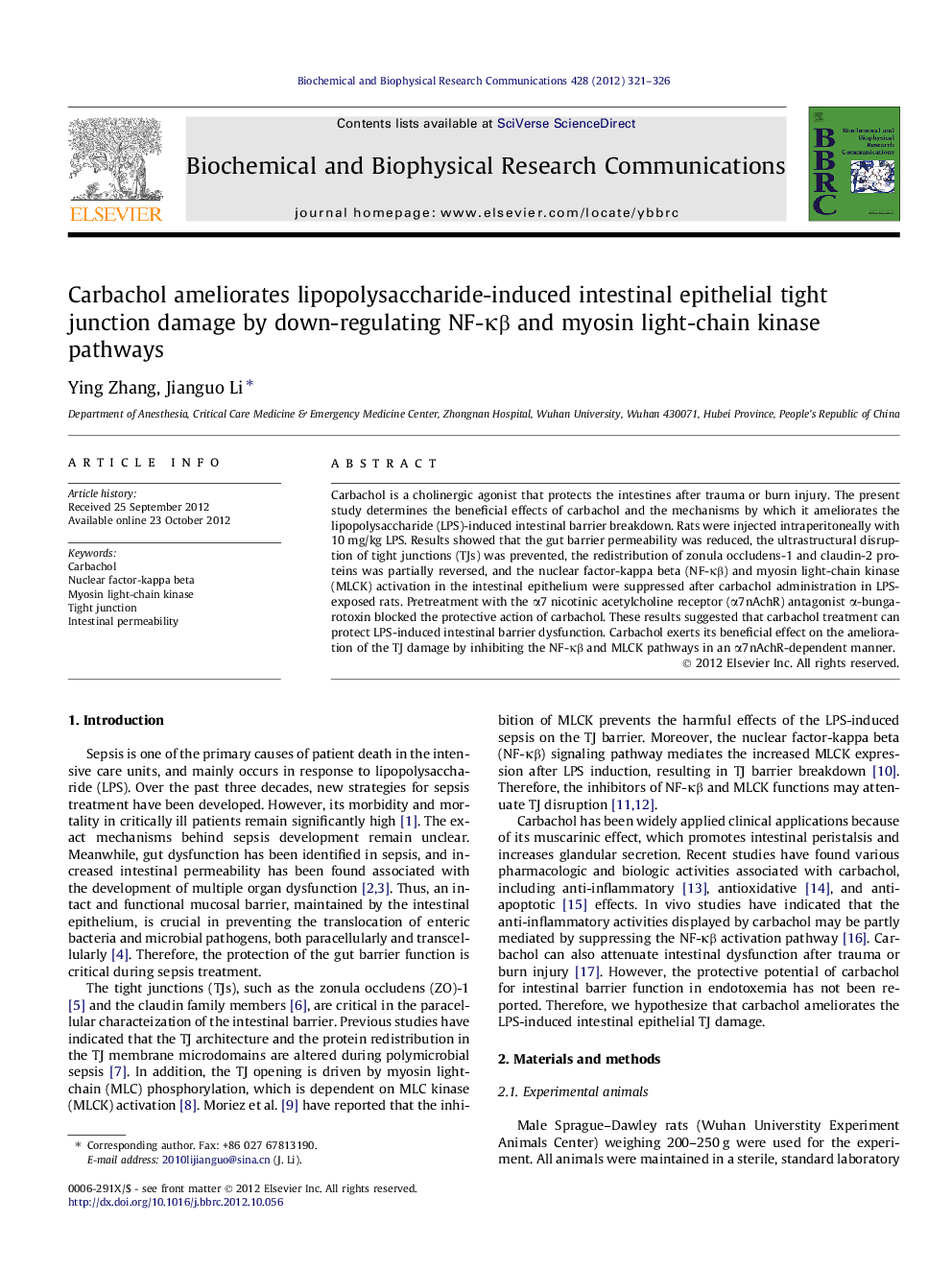| Article ID | Journal | Published Year | Pages | File Type |
|---|---|---|---|---|
| 1929419 | Biochemical and Biophysical Research Communications | 2012 | 6 Pages |
Carbachol is a cholinergic agonist that protects the intestines after trauma or burn injury. The present study determines the beneficial effects of carbachol and the mechanisms by which it ameliorates the lipopolysaccharide (LPS)-induced intestinal barrier breakdown. Rats were injected intraperitoneally with 10 mg/kg LPS. Results showed that the gut barrier permeability was reduced, the ultrastructural disruption of tight junctions (TJs) was prevented, the redistribution of zonula occludens-1 and claudin-2 proteins was partially reversed, and the nuclear factor-kappa beta (NF-κβ) and myosin light-chain kinase (MLCK) activation in the intestinal epithelium were suppressed after carbachol administration in LPS-exposed rats. Pretreatment with the α7 nicotinic acetylcholine receptor (α7nAchR) antagonist α-bungarotoxin blocked the protective action of carbachol. These results suggested that carbachol treatment can protect LPS-induced intestinal barrier dysfunction. Carbachol exerts its beneficial effect on the amelioration of the TJ damage by inhibiting the NF-κβ and MLCK pathways in an α7nAchR-dependent manner.
► Carbachol reduced the lipopolysaccharide-induced intestinal barrier breakdown. ► Carbachol ameliorated the lipopolysaccharide-induced ileal tight junction damage. ► Carbachol prevented the LPS-induced NF-κβ and myosin light-chain kinase activation. ► Carbachol exerted its beneficial effects in an α7 nicotinic receptor-dependent manner.
